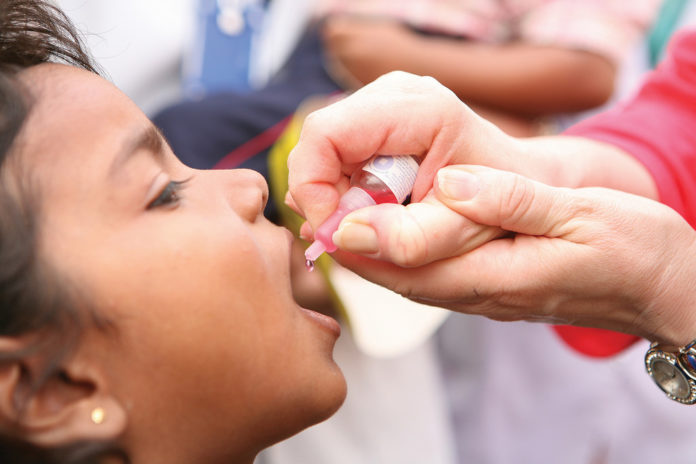There are concerns that vaccination could make babies vulnerable to diseases other than those covered in the immunisation schedule
Putting an end to the myriad concerns that come to the fore whenever there is a question on vaccines in a public health platform about vaccines compromising a child’s natural immunity, a new study has found that there is no basis in the concerns that routine vaccinations make babies more susceptible to diseases not covered in the vaccination schedule.
The study from Kaiser Permanente published in the Journal of the American Medical Association, examined this association by selecting a random sample of 193 children who had been diagnosed with a non-vaccine targeted infection and a control group of 751 children who had not been diagnosed with these infections. The study population was drawn from 500,000 infants from birth to 47-months-of-age over a 12-year period.
The study marks the first time the association between multiple vaccines and non-vaccine targeted infections has been tested in the United States with the current recommended immunization schedule. India currently administers 12 vaccines in its universal immunisation programme. These are for tuberculosis, poliomyelitis, hepatitis B, diphtheria, pertussis, tetanus, pneumonia, rotavirus, influenza, Japanese Encephalitis (in endemic districts) and measles-rubella.
“Some parents are concerned that multiple vaccines in early childhood could damage their child’s immune system, making them more susceptible to future infections. This new study suggests the theory of overloading an infant’s immune system is highly unlikely. Parents have genuine concerns about their children’s safety as related to vaccination. We hope this study shines some light on their concerns, helping parents across the nation better understand the safety and benefits of vaccinating on time,” said Jason Glanz, lead study author and senior investigator at the Kaiser Permanente Colorado Institute for Health Research.
India currently administers 12 vaccines in its universal immunisation programme. These are for tuberculosis, poliomyelitis, hepatitis B, diphtheria, pertussis, tetanus, pneumonia, rotavirus, influenza, Japanese Encephalitis (in endemic districts) and measles-rubella
The study examined the estimated exposure to vaccine antigen — a protein or other substance that induces an immune response in the body — through the first 23 months of life in children with non-vaccine targeted infections from ages 24 through 47 months who were seen in emergency departments or hospitalized, compared with children without such infections. These infections included lower and upper respiratory infections, gastrointestinal infections, and other viral and bacterial infections. The total vaccine antigen exposure was not associated with an increased risk of infections not targeted by vaccines over the next 24 months of life.
Glanz and his colleagues studied children enrolled in six integrated health care organizations that are part of the Vaccine Safety Datalink. The VSD is a research collaboration funded by the Centers for Disease Control and Prevention that uses electronic health record databases to conduct epidemiological studies of vaccine safety.
“It’s understandable that parents across the U.S. have questions and concerns about vaccine safety. This latest study found that vaccination didn’t appear to damage the immune system in a way that made kids more infection-prone. This finding will hopefully provide additional reassurance to parents about the safety of the recommended schedule,” said Matthew F. Daley, a study co-author, Kaiser Permanente pediatrician, and researcher at the Institute for Health Research in Colorado.


